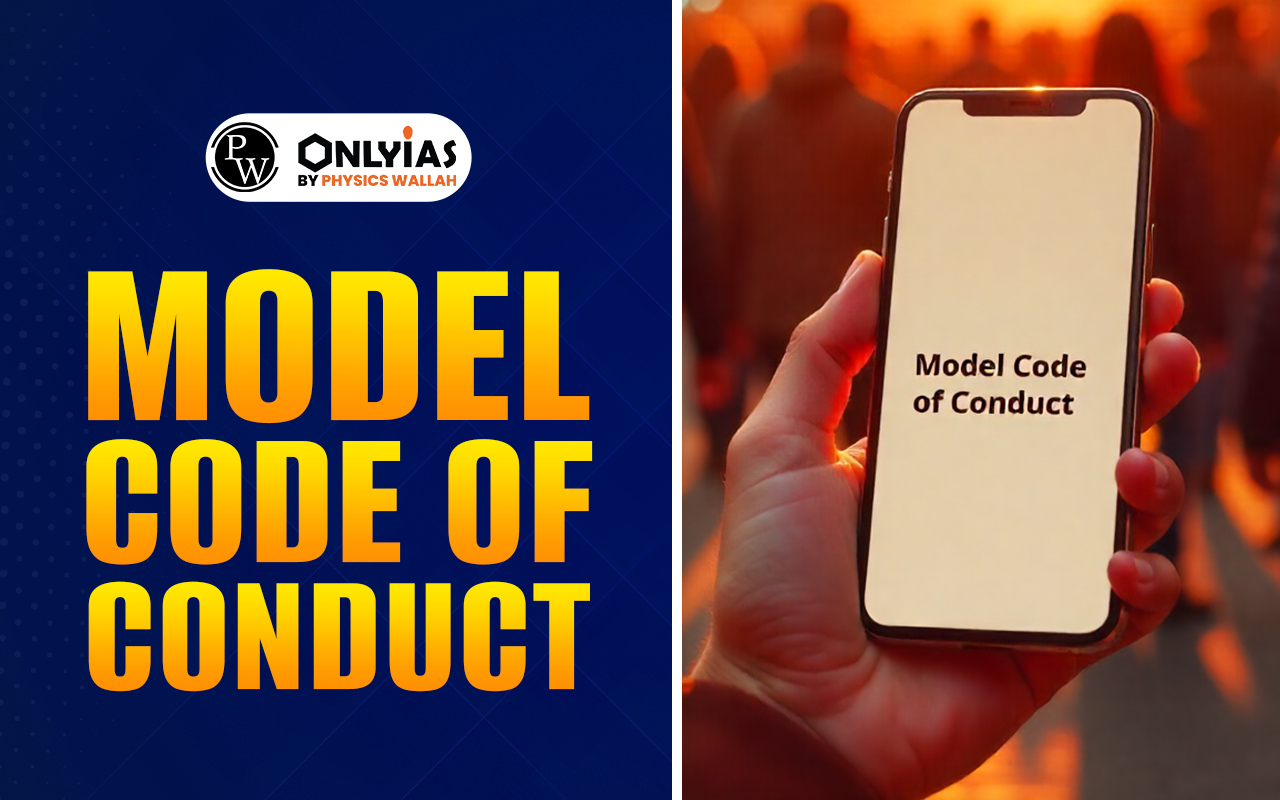Model Code of Conduct (MCC) is enforced by the Election Commission of India to ensure free and fair elections. It regulates parties, candidates, and the ruling government, covering conduct, campaigns, polling, and use of official resources until results are declared.

Model Code of Conduct (MCC) is a document based on consensus. The political parties themselves have committed to operating under the Code and to monitoring their behavior during elections. Model Code of Conduct (MCC) supports the EC in fulfilling its duty under Article 324 of the Constitution, which grants it the authority to supervise and carry out free and fair elections for the State Legislatures and Parliament.
The Model Code of Conduct (MCC) is a set of rules put in force by the Election Commission of India (ECI) to guarantee free and fair elections in the country. It is a set of rules that have evolved as a result of political parties agreeing to follow the principles embodied in the code. It also binds them to respect and follow it in letter and spirit.
MCC has its origins deeply entrenched in India’s electoral landscape. Its inception can be traced back to Kerala, where a precursor known as the ‘Code of Conduct’ was first introduced during the state’s Assembly elections in 1960.
Article 324 of the Constitution gives EC the power to supervise elections to the Parliament and the state legislatures, Model Code of Conduct is in keeping with that.
Enforcement Problems: Inconsistent or insufficient enforcement of the MCC can result in infractions that go unpunished since there is no legal basis for them.
Ambiguity: Political parties and candidates may become confused due to the MCC’s ambiguous or unclear clauses.
Limited Scope: People who oppose the MCC contend that it should be able to address more topics, such as hate speech, social media use, and election financing.
Problems with Timing: The MCC only takes effect during election seasons, allowing for misconduct outside of those periods of time.
Impact on Governance: Some believe that the MCC’s restrictions on official statements and actions during election seasons might make it more difficult for governance to operate.
Need for Reform: There are requests to reform the MCC to overcome its flaws and make it more effective in ensuring fair and transparent elections.
Reforms proposed for enhancing the effectiveness of the Model Code of Conduct (MCC) include:
| Must Read | |
| NCERT Notes For UPSC | UPSC Daily Current Affairs |
| UPSC Blogs | UPSC Daily Editorials |
| Daily Current Affairs Quiz | Daily Main Answer Writing |
| UPSC Mains Previous Year Papers | UPSC Test Series |
Model Code of Conduct is a set of rules by the Election Commission ensuring fair elections in India.
It begins with the announcement of poll schedules and remains until election results are declared.
It prohibits misuse of official machinery, transportation, advertising, and promises of financial grants during elections.
Through notices for violations, requiring responses, but it lacks legal enforceability.
Legal enforcement, technological utilization, and greater autonomy for the Election Commission.
Model Code of Conduct is known as आदर्श आचार संहिता in hindi.
<div class="new-fform">
</div>